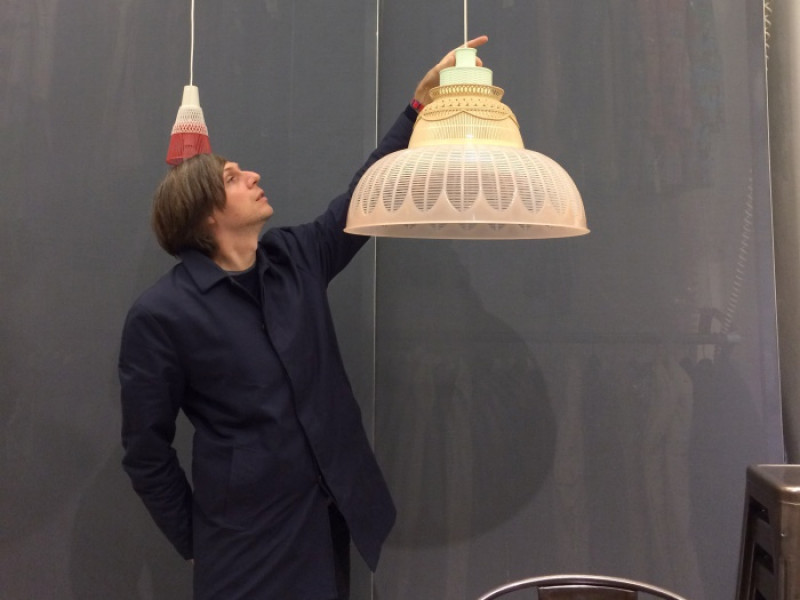Lazar Lyutakov was born in 1977 in Shabla, Bulgaria. He studied at the National Art Academy in Sofia and graduated at the Academy of Fine Arts in Vienna in 2005.
His works were included in the 6th Moscow Biennale (special project, 2015); 1st Vienna Biennale in MAK, Vienna (2015); Take - Festival for Independent Fashion and Arts (2016); 1st Triennial in Linz, Austria (2010), Sofia Underground Festival (2007). He has held solo exhibitions at Georg Kargl Permanent (2015); MAK - Austrian Museum of Applied & Contemporary Arts (2011); One night stand gallery Sofia (2017); wellwellwell Vienna (with Max Schaffer,2017); Song Song Vienna (2012); Gallery Winiarzyk, Vienna (2008); Werkbank Lana, Italy (2011); Ryllega Gallery, Hanoi (with Karine Kauchard, 2006) and Vesch Vienna (with Karine Fauchard, 2015). Lazar Lyutakov participated in numerous exhibitions worldwide, among others at The Brno House of Arts (upcoming in 2019); Gallery 400, Chicago (2013); AKKU Stuttgart (2016); GGM2, Gdansk, Poland (2013); Gallery Jacob Björn, Aarhus, Denmark (2015); Blackbridge Offspace, Beijing, China (2015); Fotohof, Salzburg, Austria (2011); Center for Contemporary Art in Plovdiv; Kunsthaus Muerz, Austria (2011); ICA Sofia (2011), Sariev Gallery Plovdiv (2011); Nha San Duk Hanoi, Vietnam (2009); Pistolet Gallery Sofia (2007), Gandy Gallery Bratislava (2006). Lyutakov's works are held in permanent collections at the Artothek - Collection of the Austrian Culture Office; Collection of the City of Vienna; Freie Sammlung Vienna and the Sofia City Art Gallery. He was shortlisted for the Gaudenz B. Ruf Award for New Bulgarian Art and for the BAZA Award for Contemporary Bulgarian Art.
Lazar Lyutakov's work embodies a fascinating intersection of elements: a contemporary post-conceptual artistic practice, the economic flows of late capital - especially as they encompass the copy and the counterfeit, the relation of the popular and fine arts, and a more modernist concern with an aesthetics of display. His practice explores the global processes of production and consumption, and of the flows of money and commodities they bring, through the display of carefully chosen (i.e. appropriated) and displayed objects. Lyutakov's work therefore carries an aesthetic punch, but only in order to tell the stories his works carry folded within themselves. In this way these objects cleverly negotiate the relation between our emotional and intellectual responses, continually playing them off in order to maximise their respective effects.
- Stephen Zepke
